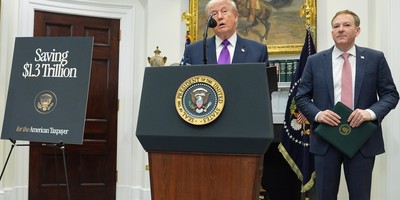During FBI Director James Comey’s testimony before the House Oversight Committee, Rep. Will Hurd (R-TX) was not happy that his Democratic colleagues thought the whole hearing was a piece of political theater. Hurd served as a undercover CIA agent for almost ten years, so he admitted that this issue before the voters and Congress regarding Hillary Clinton’s disregard for properly safeguarding classified information is personal to him.
“I spent 9 1/2 years as an undercover officer in the CIA. I was the guy in the back alleys, collecting intelligence, passing it to lawmakers. I’ve seen my friends killed. I’ve seen assets put in harms way,” he said.
Director Comey was brought before the committee to answer questions relating to the FBI’s investigation into whether the former first lady mishandled classified information through her email use. Comey found that Clinton and her team were “extremely careless” in protecting state secrets, and that classified material was found on various email chains on her server, contrary to what Clinton and her team have said at the outset of this fiasco. Yet, he decided not to recommend Clinton be charged for her egregious handling of sensitive materials, which Hurd found to be “outrageous.”
REP. WILL HURD, TEXAS: The former secretary of state had an unauthorized server (those are your own words) in her basement, correct?JAMES COMEY, FBI DIRECTOR: Correct.
HURD: Who was protecting that information? Who was protecting that server?
COMEY: Well not much. There was a number of different people who were assigned as administrators of the server.
HURD: And at least seven email chains, or eight, that was classified TS [Top Secret]/SCI [Sensitive Compartmented information]?
COMEY: Correct.
HURD: So the former secretary of state, one of the president’s most important advisers on foreign policy and national security, had a server in her basement that had information that was collected from our most sensitive assets and it was not protected by anyone—and that’s not a crime? That’s outrageous.
Recommended
Hurd then asked if Clinton exposed “America’s secrets vulnerable to hostile elements,” Comey agreed. The congressman then asked the director if any of his employees have similar emails systems in their private homes. Comey said that they better not have, as they would face disciplinary action from reprimand to termination (and everything in between) for mishandling classified material, though he’s only speaking for matters relating to the FBI. Hurd had previously asked how punishment could be meted out given that Comey’s decision was setting a precedent.
Congressman Hurd then inquired about the case of first impression within our legal system, and why Clinton’s “careless” attitude towards safeguarding classified information was not applied in this instance.
Comey said:
There is such a thing, which just means the first time you do something. The reason this isn’t one of those is that’s just not fair. That would be treating somebody differently because of their celebrity status, or because of some other factor, doesn’t matter. We have to treat people—it’s the bedrock of our system of justice. We treat people fairly. We treat them the same based on their conduct.
Hurd pressed, questioning the degree of fairness in which to punish a person who mishandled some of the most sensitive information with regards to data collection.
Comey stuck to his guns, adding that it would not be fair to prosecute that person, in this case Hillary Clinton, on these facts; a robust disciplinary hearing, yes—but not a criminal prosecution.

























Join the conversation as a VIP Member